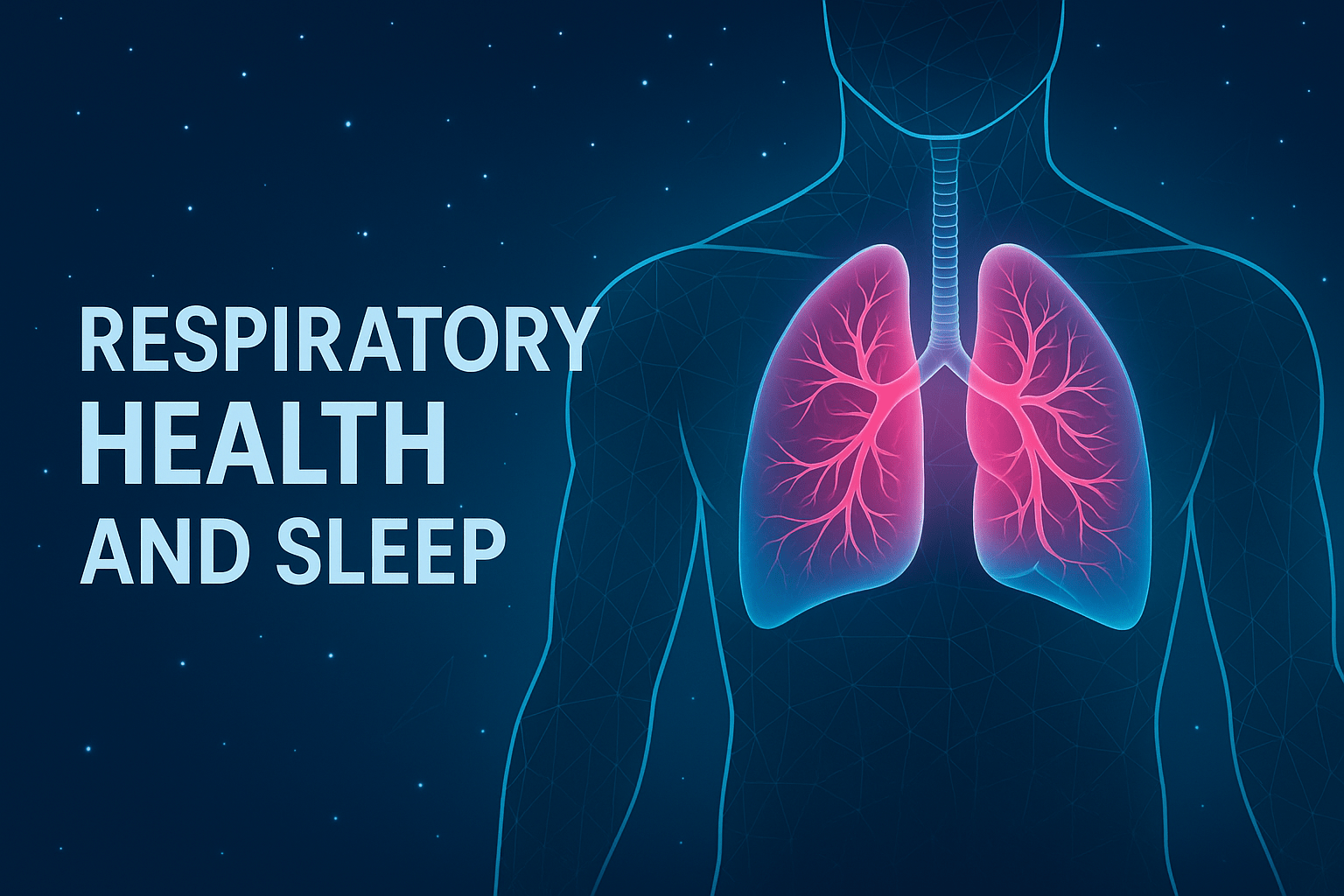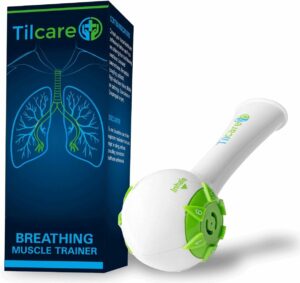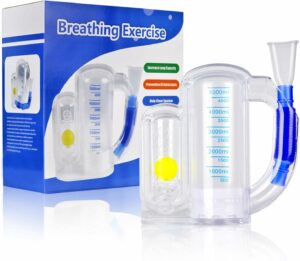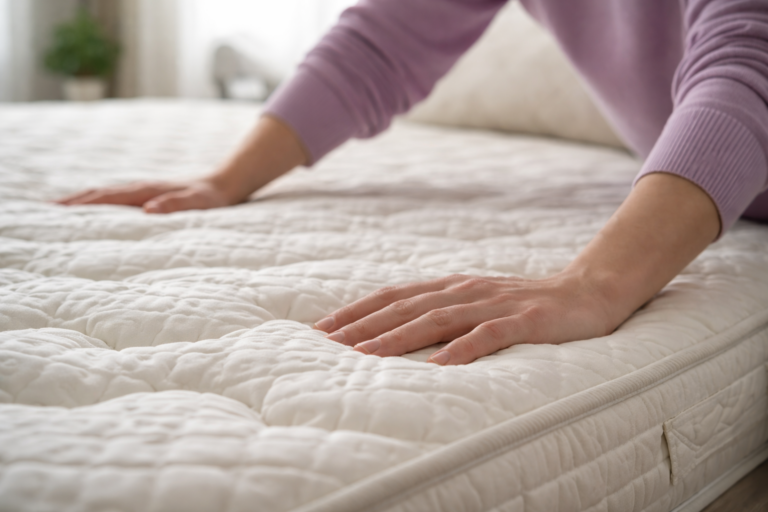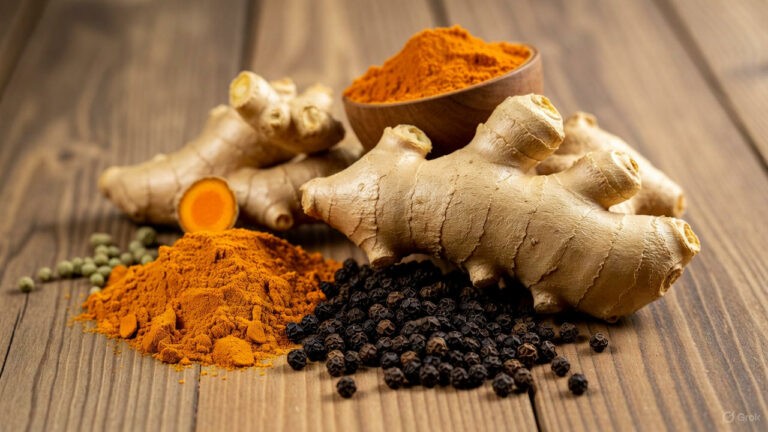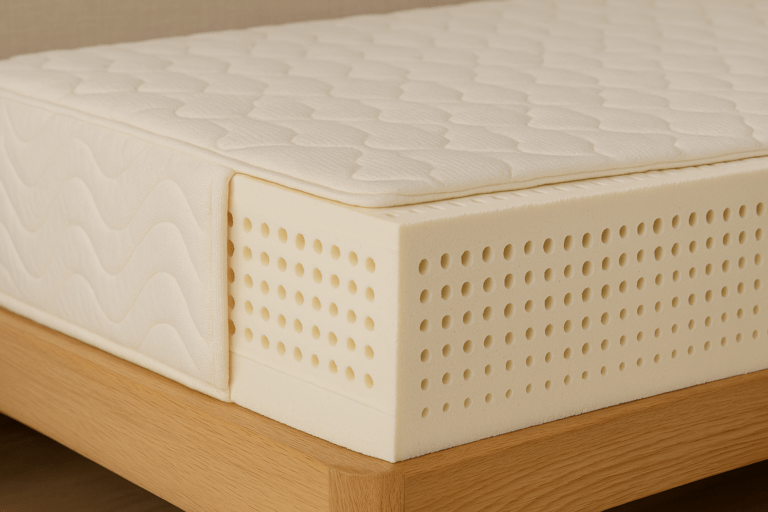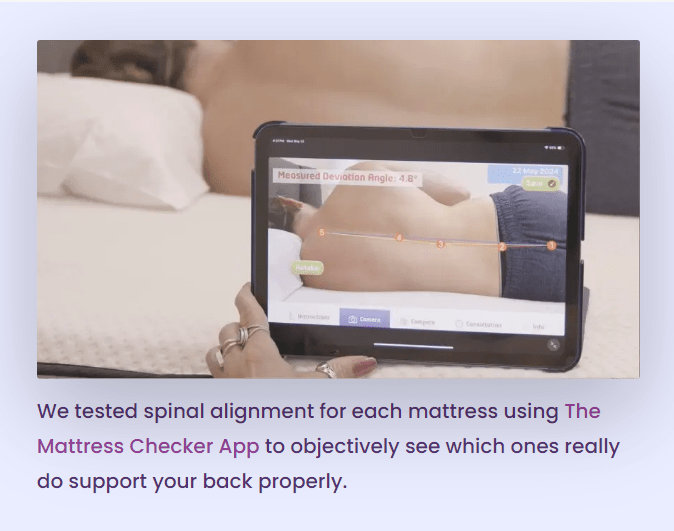Struggling to Breathe—Day or Night?
Breathing shouldn’t feel like work, but for my dad, who lives with COPD, it often does. He deals with mucus buildup and tight airways daily. And I’ve realized I have my own struggles too: shallow breathing and breath-holding brought on by stress and anxiety. We’re in different boats, but we both needed support. In this article, I talk about breathing tools and herbal tinctures we’re starting to test, to help clear airways, build lung strength, and support our nervous systems.
Breathing Tools and Natural Herbs For Respiratory Health and Sleep
When sleep is a struggle and breath feels tight, it’s a signal—something deeper is asking for attention. For me, this has been a personal wake-up call.
My dad has COPD and ongoing respiratory issues. At 79, he’s dealing with mucus buildup, shallow breathing, and reduced stamina. We’ve tried a lot over the years—from supplements and teas to diet changes. Some things helped. Others didn’t. But one thing became clear: he needs to actively work his lungs, not just hope they’ll improve.
At the same time, I’ve noticed my own breathing patterns have changed. I hold my breath when I’m anxious. I skip breaths when I’m overstimulated. I breathe shallowly when I’m overwhelmed, which is often. So even though we’re in totally different stages of life, we both need support.
That’s what led me to explore breathing trainers and respiratory herbs—tools that support lung health, calm the nervous system, and promote better sleep.
3 Breathing Tools We’re Testing
To find what works best, we’re rotating a few different breathing trainers with their own design and benefits. These tools help strengthen the lungs, encourage deeper breathing, and support mucus movement, all important for both respiratory health and nervous system regulation.
1. Tilcare Inspiratory Expiratory Muscle Trainer $29.99
This one is ideal for beginners and for people with chronic conditions like COPD. It’s gentle, adjustable, and easy to use, even while watching TV, which makes it a great fit for my dad. It provides resistance on both the inhale and the exhale to help build lung and diaphragm strength gradually. Plus, it helps loosen mucus, which is essential for keeping airways clear.
2. Incentive Spirometer (5000ml Capacity with Flow Rate Indicator) $24.99
This device is commonly used in hospitals to support lung recovery after surgery, but it’s also helpful at home for improving lung expansion and tracking progress. It gives visual feedback while you inhale, showing how well you’re filling your lungs. It’s especially useful for those with shallow breathing patterns or recovering from illness. We’re using this one to focus on inhalation strength and lung volume.
3. Inhale Respiratory Trainer (Adjustable & Compact) $16.99
The Inhale Trainer is compact, portable, and made with high-grade silicone. It offers adjustable resistance, making it great for gradual progression. It’s easy to clean and comes with a carrying case, which makes it ideal for keeping on hand during travel or quick sessions throughout the day. We’re using this one to target controlled breathwork and endurance building.
How Breathing Affects Sleep (And Everything Else)
Your breath is the bridge between your body and your mind. When it’s shallow or tight, your nervous system senses danger, even if you’re just sitting at a desk or lying in bed. Breath-holding, chest breathing, and skipping breaths are all signs your body is in fight-or-flight mode. For people with COPD, asthma, or sleep apnea, this becomes even more complicated. Breathing is already a challenge, and nighttime symptoms like coughing or congestion can completely interrupt sleep What I’ve learned is this: You can’t always change the condition, but you can train the breath. And when you train the breath, you begin to shift the entire system. That’s why these tools, and the natural herbs below, can make such a difference.
Herbs for Respiratory Health and Better Sleep
While breathing tools strengthen the mechanics of breath, herbs support the internal environment, clearing mucus, reducing inflammation, opening the airways, and calming the system so sleep can happen naturally.
We’re currently using a couple of alcohol-free tincture blends from Hawaii Pharm, a brand known for using organic and wild-harvested herbs. These can be taken daily (in water or tea) and offer a gentle, effective complement to lung training.
Here’s what’s in the blends we’re using and why each herb matters:
Lobelia
A powerful bronchodilator, Lobelia helps relax the bronchial tubes and open the lungs. It’s often used for asthma, wheezing, a tight chest, and even anxiety-related breath issues. It supports oxygen flow and can gently break the panic-breathing cycle many people fall into at night. Small amounts go a long way, especially when combined with other lung-soothing herbs. Get Hawaii PharmLobelia Liquid Extract ››
Mullein
Mullein is one of the best herbs for chronic congestion and inflamed lung tissue. It helps thin and move mucus, reduce coughing fits, and soothe dry, irritated airways. It’s commonly used in formulas for smokers, people with bronchitis, or lingering post-viral lung issues. It makes breathing feel easier, especially in dry climates or at night. Get Hawaii Pharm Mullein Liquid Extract ››
Thyme
A natural expectorant and antimicrobial, thyme helps fight respiratory infections and clears out sticky phlegm. It supports the lungs in breaking up congestion and keeps airways clear. Great for anyone with chronic sinus issues, postnasal drip, or upper respiratory tightness that interferes with restful sleep. Get Hawaii Pharm Thyme Liquid Extract ››
Licorice Root
Licorice Root is both soothing and adaptogenic, meaning it calms inflamed airways and helps the body handle stress. It’s especially helpful for people whose coughs worsen with stress or those who’ve been on inhalers or steroids. It supports adrenal health, lung lining repair, and sleep quality. (Note: If you have high blood pressure, use the deglycyrrhizinated (DGL) form or check with your provider.) Get Hawaii Pharm Licorice Liquid Extract ››
Red Ginseng
This one surprised me. While it’s often marketed for energy and endurance, Red Ginseng has been shown to improve lung capacity and oxygen utilization, particularly in COPD patients. It supports circulation, recovery, and resilience-helpful for those with sleep apnea or anyone feeling depleted from long-term illness. Get Hawaii Pharm Red Ginseng Liquid Extract ››
Ginger
Warming and stimulating, Ginger breaks up chest congestion and improves circulation. It helps move stagnant mucus and reduces inflammation. For people who feel cold, sluggish, or prone to wet coughs, ginger creates movement and clarity. It also relaxes the digestive system, which is a bonus before bed. Get Hawaii Pharm Ginger Liquid Extract ››
How We Use Them
We take the tinctures in a small amount of water, 1-3 times a day, depending on symptoms. For my dad, I usually give him a dose in the afternoon or before bed if he’s congested. I take mine during the day when I notice tension in my chest or breath-holding creeping in.
Always start low and go slow-especially if you’re new to herbs or taking medications. These plants are potent, and they work best with consistency and care.
Creating a Simple Breathing Ritual
If you want to try this for yourself or a loved one, here’s a basic routine:
- Use the breathing trainer (Tilcare or Breather Fit) for 5-10 minutes while seated upright.
- Drink a glass of water or herbal tea afterward to stay hydrated and support mucus movement.
- Take your respiratory tincture, ideally with a calming activity like reading, journaling, or soft music.
- Stretch or do gentle movement, even just shoulder rolls or legs-up-the-wall, to promote circulation.
- Repeat daily, ideally before bed or mid-afternoon, to downshift your nervous system.
This small ritual helps build a sense of safety, grounding, and breath awareness. And that’s what leads to better sleep.
Final Thoughts: Breathing is the Beginning
We’re not expecting overnight results-but we are hopeful. Right now, we’re trying out these breathing tools and rotating different respiratory tinctures to see what gives us the best support. It’s a process of tuning in, staying consistent, and giving our bodies a chance to respond. Whether it’s clearing mucus, strengthening lung capacity, or calming the nervous system for better sleep, we’re finding what works, one deep breath at a time.
Breathe deep. Rest easy. You’re not alone.

